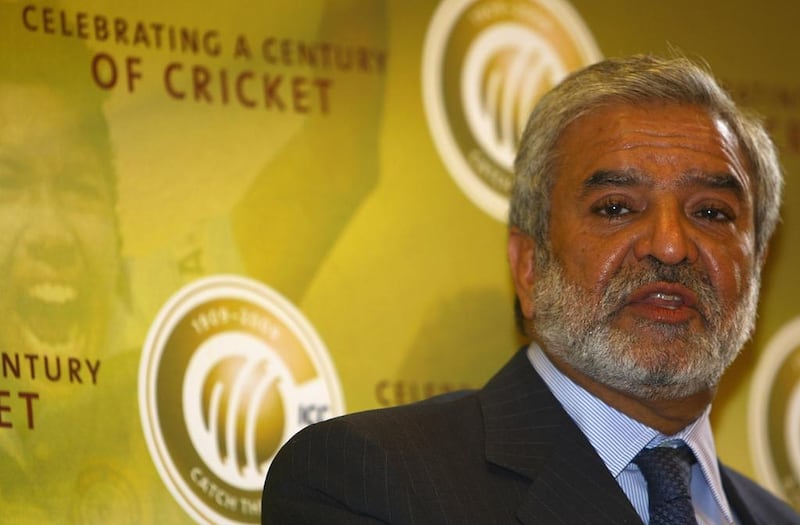DUBAI // At the heart of attempts by cricket’s richest boards to bring seismic change to the game are plans for a new system of financial distribution in which Cricket Australia (CA), the England & Wales Cricket Board (ECB) and the Board of Control for Cricket in India (BCCI) stand to benefit the most.
As International Cricket Council (ICC) board meetings begin today, it has become increasingly clear that of all the changes proposed in the position paper, the financial redistribution of the money the ICC brings in is not negotiable.
The other major aspects of the paper – the scrapping of the Future Tours Programme (FTP) and even a new governance structure which concentrates all executive power into the hands of the three boards – are believed to be negotiable. The form of the Executive Committee (ExCo) the paper talks of can, according to one official, be “watered down.”
But the financial redistributions, as has been reiterated in a number of sideline meetings by the three to the rest, is a no-go. Those plans envisage a greater share of increased ICC monies going to, in order, the BCCI, ECB and CA.
The justification for this is that it is these three boards, and specifically the BCCI, that draw in much of the revenue to the world game, which is, currently, then redistributed equally among the 10 full members. The position paper states that the BCCI generates “80 per cent” of the game’s revenues and as such, should recoup more than an equal portion.
Most boards acknowledge that a reworking of the system is needed, to reflect the financial strength of those three boards.
But questions over the last week about, one, the accuracy of that figure and two, the new redistribution plan, which ultimately widens the financial disparity between the top and bottom boards have become increasingly strident.
Lead among the doubters was Ehsan Mani, a former ICC president, and a chartered accountant himself. He penned a 12-page response to the report, in which he took apart the finances on which any new world might be based.
“The proposal put forward in the Paper is fundamentally flawed,” Mani writes. “It assumes that the members have proprietary interest in the money their countries’ economies generate for ICC events.
“The fact is that broadcasters buy cricket rights because it appeals to their customers, drives subscriptions and advertising revenues. Similarly, sponsors use cricket to promote their goods and services. While the values are generally greater when the broadcaster’s country is playing, not all of this can be attributed to the individual country’s Board.”
Mani has also advised at least two boards on broadcast deals, and is familiar with the workings of an industry that underpins cricket’s finances.
“The quality of the opposition has a great bearing on the value Boards receive for their media rights. A strong case could be made that the broadcast revenues for bilateral home and away series between two members should be pooled and shared equally.
“While there would be a significant reduction in the value of the ICC commercial rights if India did not participate in an event, it would not be a reduction of 80% of ICC revenues. The Indian broadcasters would still wish to broadcast ICC Events.”
osamiuddin@thenational.ae
Follow us on Twitter at @SprtNationalUAE





